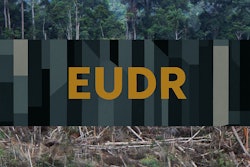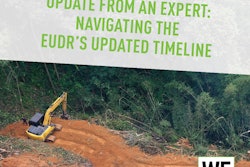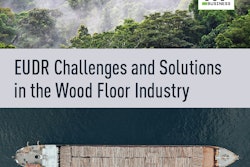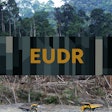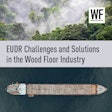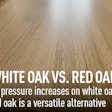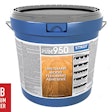We have "Lacey" and the folks Down Under have "ILP." ILP is collectively two related bits of legislation: The first is the primary piece of legislation, the Illegal Logging Prohibition Act 2012, and the second is the subordinate Illegal Logging Prohibition Amendment Regulation 2013.
The coverage and focus of the two parts differ somewhat. All imports of products made of wood and Australian processors of raw logs are covered by the Act, while the Regulation only applies to importers of "Regulated Timber Products" as well as domestic processors of raw logs. (This list of "Regulated Timber Products" is almost identical to the Lacey list of products for which a declaration currently must be made-lumber, decking, flooring, pulp, paper, wood furniture, etc.) The Regulation begins to cover imports on Nov. 30, 2014.
While similar in principle to Lacey and the European Union's EUTR and with the same basic goal-eliminate illegal wood in the supply chain-there are quite a few differences in practice, of course. Naturally, this is important to American exporters; however, importers may find a bit of research into the legislation useful as well, as Australia has put tremendous emphasis on due diligence. And to support those businesses affected, the government and the Australian timber industry have both developed a number of tools and guidelines to help. These tools can be accessed by anyone from two websites (listed below) and may provide companies with ideas that will help them comply with either/both Lacey and the EUTR.
ILP is different from Lacey (but similar to the EUTR) in the fact that responsibility stops at the entry into the general marketplace. Only the actual importer or the domestic processor (e.g. sawmiller) has full liability. Those downstream that do not directly import timber or process domestic raw logs are not covered-unlike Lacey, where American distributors and retailers are responsible for all material they trade in, domestic and imported.
Another difference is that in Australia there is a two-tier prohibition system. Under the Act (the primary part), the importer or domestic producer can be prosecuted based on if they "knowingly, intentionally or recklessly" imported or processed illegally logged timber. Under the Regulation, the importer can be prosecuted based on if they imported illegally logged timber and it can be proven that they were "negligent." Note that both emphasize a deliberate misconduct or a clear failure on the part of the importer. This is a significant difference from Lacey, where an importer can act aggressively in good faith to eliminate illegal material and still be prosecuted for some action by someone earlier in the supply chain over which they had no control and no knowledge.
The program, like the EUTR, requires companies to make a real effort. Importers of these regulated timber products, as well as domestic processors, also have to undertake a process of due diligence to minimize the risk that the goods they handle could have been illegally harvested. Stephen Mitchell of the Timber Development Association stated that "If a company is found to have illegally harvested timber in their possession, but can also demonstrate having in place a sound due-diligence program in an attempt to avoid such a situation, it is hard to see any prosecution action being undertaken."
That makes two immediate differences from Lacey-first the focus here is specific to illegally harvested material, while Lacey potentially covers any possible related infraction. (For example, the second Gibson investigation was related to HTS codes, not to the potential illegal harvest of the wood in question.) The second difference is the requirement that a company has a due-diligence program. For Lacey, having a good due-diligence program will obviously help if there is an enforcement action and be taken into consideration by the government, but it is not protection against enforcement, nor is it mandated by the statute. (Of course it's just plain common sense and good corporate behavior to have one, even if it's not specifically mandated!)
Next week we'll look at how the Australian government plans to enforce the new requirements. In the meantime:
For more Australian government information:www.daff.gov.au/forestry/policies/illegal-logging
For more Australian industry timber due diligence information:www.timberduediligence.com.au















